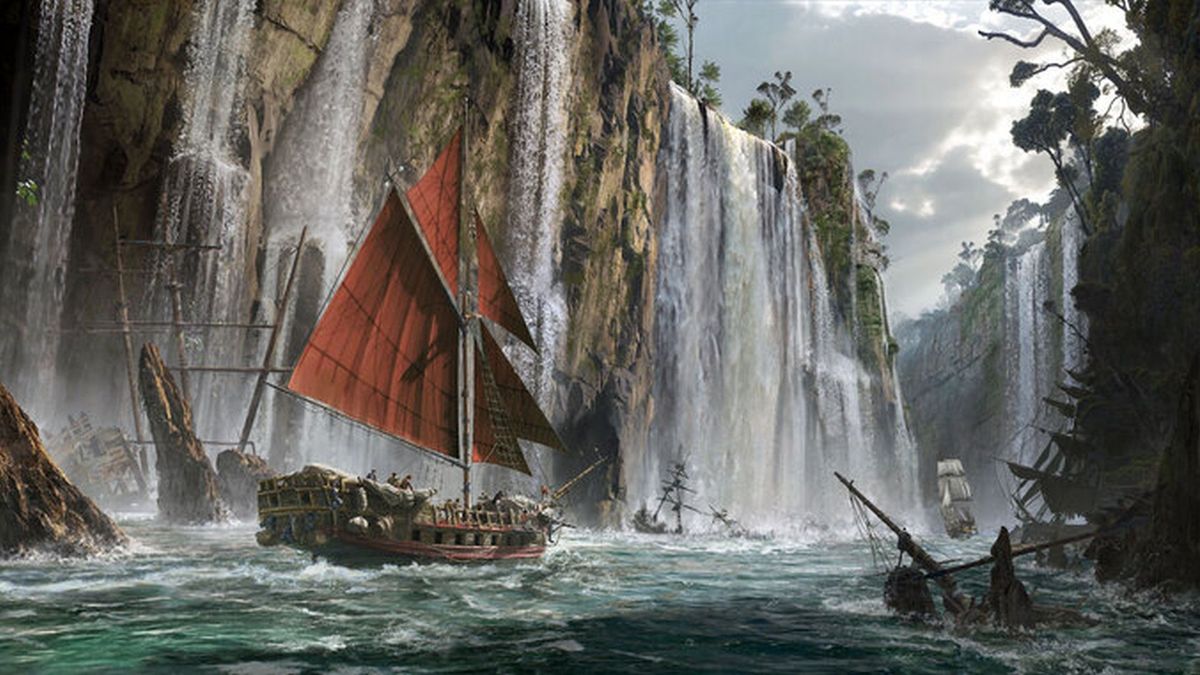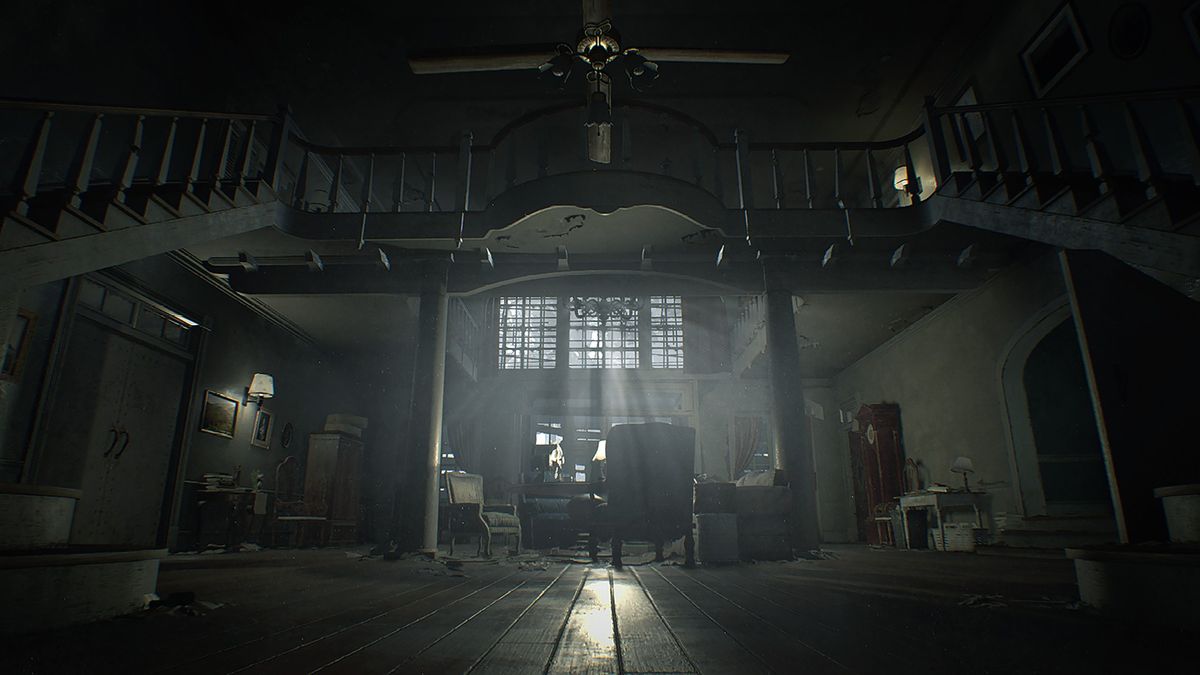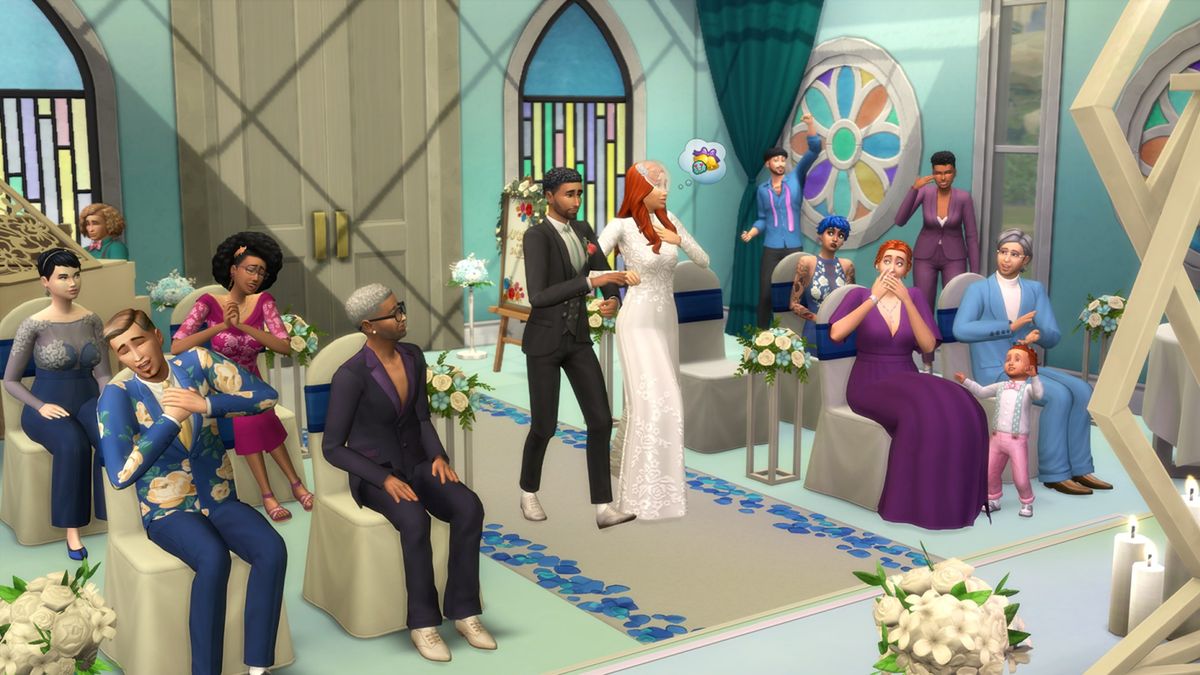By Marshall Lemon
Stop me if you’ve heard about this fantasy world before: Elves live in kingdoms among the wilds and are aloof compared to humanity. Dwarves life in mining communities beneath ancient mountains, and frequently bang heads with the elves. Humans are the relatively new race that nobody really trusts but has established itself as a dominant civilization. Giant wolves and spiders guard the deep woods, necromancy is frowned upon, and some massive supernatural army is assembling itself at the edges of a kingdom’s borders. Probably orcs.
I love fantasy RPGs. I constantly lose hours to games like Dragon Age and The Witcher. But just about every fantasy game out there uses the same Tolkien-inspired checklist for its races, antagonists, and settings. Even those games which try to put a unique spin on the Dungeons & Dragons gaming formula are still working from the same rulebooks – Dragon Age’s Templars and darkspawn are basically Paladins and orcs with universe-specific quirks. (The only consistent exceptions to this are fantasy JRPGs, but those usually fall into deeply repetitive traits of their own.)
Of course, the main reason this happens is because fantasy gaming has been using Lord of the Rings and Dungeons & Dragons as its template for decades – both inspired by European mythology and folklore. And while we’ve seen legitimately great stories emerge from this formula, there’s an entire planet of culture fantasy gaming could draw from. Instead of looking to classic fairy tales, fantasy games could explore Aztec mythology, Indian mysticism, or the Voodoo afterlife. And while some individual games address these topics, they’re far from the norm – assuming they authentically reflect the culture at all.
Thankfully this is slowly changing, especially as the indie games market continues to grow. Take Aurion: Legacy of the Kori-Odan, which launched last month on Steam. Developed by Kiro’o Games, this action RPG was designed for the express purpose of featuring the creator’s African heritage in a video game.

Aurion follows the journey of Enzo and Erine, the king and queen of Zama who are exiled from their home thanks to a coup on their wedding day. Together they set about finding allies who will help them retake Zama’s palace, while undertaking a personal quest to develop Kori’s latent mystical abilities. Along the way, they’ll encounter quests and antagonists reflecting the real world issues faced by many African nations – albeit through Aurion’s fantasy lens.
Kiro’o Games has created a distinct fantasy world that doesn’t fit the mold of most fantasy games. Character designs and costumes bear a strong resemblance to African traditions. Villages and buildings don’t resemble the feudal European style we’ve come to expect. Monsters and folklore from Egyptian, Malian, Cameroonian, and Ethiopian belief structures have been adapted into Aurion’s cosmology.
Yet for all of Aurion’s references and research, its gameplay will already be familiar to long-time gamers. It’s effectively a real-time JRPG, with Kiro’o citing the Tales series was a major influence. Apparently the developers are also manga/comics fans, which certainly explains Enzo’s Dragonball-esque powers he displays right from the game’s prologue. Casual players might struggle with Aurion’s many text-based tutorials, but any gamer who loves dissecting combat systems will find a lot to enjoy here.

Creatively speaking, this is an ideal combination for video games – a unique perspective, developed into an interactive world within a familiar genre. It even allows for distinct character designs and art styles rarely seen in the industry. But beyond simply allowing for something different, that perspective informs the fantasy universe enough to let it tackle serious issues – problems like war, slavery, and even mass murder.
Most importantly, these issues are painted in a distinctly African context. Aurion’s setting isn’t a unified front, but divided nations grappling with internal and external conflicts. Its villains are not melodramatic conquerors, but damaged human beings uncertain how to respond to the world’s violence. Enzo and Erine’s journey isn’t just about retaking a kingdom, but watching them grow and change when confronted with horrific realities beyond Zama’s borders. Bringing these perspectives to video games presents us with new opportunities to consider and discuss such issues, which has value well beyond gaining a new fantasy setting.

And that’s just Aurion – we’ve seen all kinds of indie games explore perspectives of other nations and cultures in recent years. 1979 Revolution focuses on the fallout experienced by participants of the Iranian revolution. This War of Mine was inspired by the real-life Bosnian War and Siege of Sarajevo in the mid-90s. Even fantasy worlds are slowly making their way into the mix, most notably the Inuit storytelling of 2014’s Never Alone. While fantasy RPGs from these cultures are few and far between, the video game industry is slowly reaching the point where these perspectives aren’t oddities anymore – and that’s a good thing.
I’d love to see more games like Aurion, crafting interesting new worlds, exploring unique cultural perspectives, and bringing new ideas to the industry. Our fantasy universes have spent decades drawing from the same well. But getting a fresh perspective from other cultures and traditions can make for even more exciting fantasy worlds – and in turn, exciting video games.
 Game News Video Games Reviews & News
Game News Video Games Reviews & News



